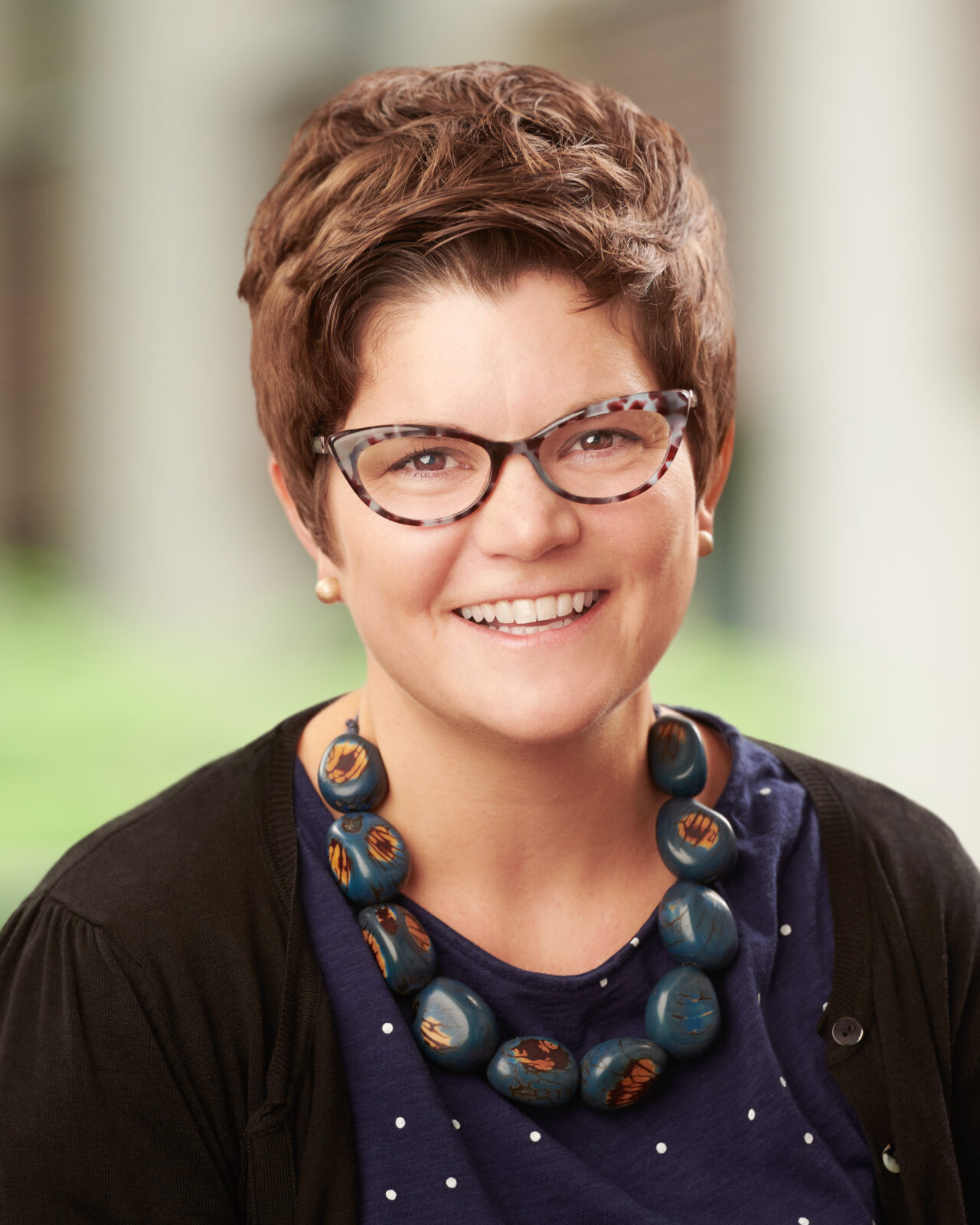News Details
Report: Trailblazing guaranteed income program in Saint Paul enhanced mental and financial well-being

Authored by: Carson Easterly
Photography by: Shutterstock
Faculty & Research
12/18/23
In a report authored by the Center for Guaranteed Income Research (CGIR) at Penn’s School of Social Policy & Practice (SP2), findings from the 18-month People’s Prosperity Pilot (PPP) guaranteed income program reveal connections between the receipt of unconditional cash and improved financial health, sense of self, and economic mobility.
Based in Saint Paul, Minnesota, PPP was a partnership between Mayor Melvin Carter and the City of Saint Paul. Funded by a combination of federal, state, and philanthropic dollars, PPP provided 150 participants with $500 monthly cash payments from October 2020 to April 2022.
PPP is the first-ever Mayors for a Guaranteed Income (MGI) pilot and the first guaranteed income program in the United States to use public funding since the 1980s. “A guaranteed income addresses the basic cause of poverty — a lack of money. This pilot shows that a relatively small, no strings attached payment can open up a world of opportunity. Leveraging unconditional cash on a national level is an obvious tool that can dismantle generational poverty,” says Saint Paul Mayor Melvin Carter, MGI national co-chair. Founded by former Stockton, CA, Mayor Michael Tubbs, MGI is a coalition of over 125 mayors committed to advancing a federal guaranteed income.
According to the report’s authors, the potential of guaranteed income has particular resonance in the location of Saint Paul. “The commitment to inclusive programming and accessible public benefits is particularly important in the City of Saint Paul, as it is home to a large and diverse group of foreign-born residents and boasts the largest Hmong and Somali populations in the United States. And yet — the poverty rate of Saint Paul is nearly double that of the rest of the state, indicating the need for economic justice opportunities that are equitable for all,” write authors Kalen Flynn, Amy Castro, Stacia West, Nidhi Tandon, Allison Thompson, and Ben Cochran of CGIR.
Part of a series of CGIR reports collectively named The American Guaranteed Income Studies, the study found that despite facing structural barriers to financial stability and unprecedented hardship brought on by the COVID-19 pandemic, participants benefitted from guaranteed income in several ways:
- Improved quality of life — Recurring unconditional cash transfers decreased participants’ financial burden and provided alternative pathways to achieving their financial goals.
- Enhanced sense of self — Guaranteed income provided more opportunities for recipients to give back to their communities and spend time with loved ones, resulting in improved social support and decreased isolation.
- Increased capacity for economic mobility and narrative change — Employment among participants increased throughout the study, and recipients noted that the experience countered harmful narratives about poverty and the benefit system.
“The results from Saint Paul’s guaranteed income program fill me with hope,” said Michael D. Tubbs, founder of Mayors for a Guaranteed Income. “They are similar to what we saw in Stockton — people found better jobs, moved into safer housing, had more time to spend with their children and overall felt more hopeful and less anxious about the future. It shows that guaranteed income can and does make families and communities stronger and more resilient.”
Participants were randomly selected from CollegeBound Saint Paul, the city’s universal college savings program designed to give all of the city’s children a $50 seed deposit in a college savings account at the time of birth. Families were eligible to participate if they self-attested to being impacted by COVID-19 and were at or under 300% of the poverty line.
By pairing PPP and CollegeBound Saint Paul, “the city innovatively combined an income-stabilizing strategy aimed at addressing present income volatility with an asset-building strategy designed to increase future savings over time,” the authors say.
The unconditional nature of the guaranteed income provided participants the agency to spend the cash as they saw fit. Some of the uses included necessities such as food, housing costs, savings, or medical bills. One participant commented, “What I do like about this [guaranteed income], is it gives people a little bit more freedom and flexibility with very low . . . administrative costs for them to use the money on what they feel is best.”
Researchers found that participants’ financial well-being remained stable or improved throughout the pilot but declined six months after cash transfers ended. The authors write, “These findings suggest that unconditional cash may serve as a powerful strategy to alleviate financial strain, but its power may be limited once it ends and external stressors continue.”
At the same time, the findings also indicate that some positive effects continued beyond the pilot. Six months after PPP ended, unemployment remained lower than at the start of the study and recipients continued to report an improved sense of self, hope, and mattering, which the authors note are important components for overcoming poverty.
Additionally, the findings show that by placing trust in participants’ ability to spend cash, the guaranteed income program increased recipients’ feelings of deservedness and countered feelings of shame about seeking support. The authors argue this core value of trust also has the power to shift perceptions of poverty and government-funded benefits programs. “These findings challenge dominant narratives of poverty and add to a growing body of literature re-imagining the social contract,” they write.
About the Center for Guaranteed Income Research
The Center for Guaranteed Income Research (CGIR) is an applied research center specializing in cash-transfer research, evaluation, pilot design, and narrative change. CGIR provides mixed-methods expertise in designing and executing empirical guaranteed income studies that work alongside the existing safety net. Headed by its founding directors, Drs. Amy Castro and Stacia West, CGIR is housed at the School of Social Policy & Practice at the University of Pennsylvania.
About Penn’s School of Social Policy & Practice (SP2)
For more than 110 years, the University of Pennsylvania School of Social Policy & Practice (SP2) has been a powerful force for good in the world, working towards social justice and social change through research and practice. SP2 contributes to the advancement of more effective, efficient, and humane human services through education, research, and civic engagement. The School offers five top-ranked, highly respected degree programs along with a range of certificate programs and dual degrees. SP2’s transdisciplinary research centers and initiatives — many collaborations with Penn’s other professional schools — yield innovative ideas and better ways to shape policy and service delivery. The passionate pursuit of social innovation, impact, and justice is at the heart of the School’s knowledge-building activities.
About Mayors for Guaranteed Income
Founded in June of 2020 by former Stockton Mayor Michael Tubbs, Mayors for a Guaranteed Income (MGI) is a coalition of over 125 mayors committed to advancing a federal guaranteed income – direct, recurring cash payments to the poor and middle class. MGI, together with the University of Pennsylvania School of Social Policy & Practice, has also established the Center for Guaranteed Income Research to consolidate the key learnings from the pilots taking place in MGI member cities to address knowledge gaps and allow the organization to layer data with anecdotal evidence.
People
-

-

Amy Beth Castro, PhD
Associate Professor
Contact
-

Nidhi Tandon, MS, MPhil
Data Scientist (Social and Behavioral Statistician), Center for Guaranteed Income Research
Contact
office: 732.939.1157
Email
-
